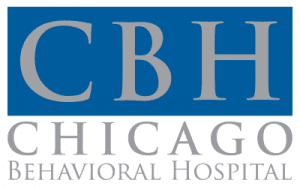Chicago Behavioral Hospital offers FREE Assessments 24/7, call us at
How to Approach Someone Suffering from Postpartum Depression
It’s common for new mothers to experience the “baby blues” shortly after giving birth, but if symptoms are persistent or severe, it may be an indicator of postpartum depression. Recognizing the signs of PPD and knowing how to approach a loved one who may be suffering can go a long way toward helping them recover. Here are postpartum depression symptoms to look for and ways you can help:
Signs of Postpartum Depression
The Centers for Disease Control reports that PPD affects as many as 600,000 women each year in the US. According to the American Psychological Association, the condition can significantly impact a woman’s ability to carry out daily activities. PPD may resemble the mood swings that many new mothers experience, but its symptoms are more intense and longer-lasting. If you suspect that you or a loved one has postpartum depression, be on the lookout for these signs:
- Feelings of guilt or worthlessness
- Difficulty connecting with your partner or bonding with your baby
- Severe anxiety that prevents you from eating and sleeping properly
- Thoughts of harming yourself or your child
Postpartum Depression Help
Here are some ways to come alongside a new mom who is struggling with postpartum depression symptoms:
Lend a Hand with Everyday Tasks
Ask what they need help with and provide assistance with everyday chores, such as housecleaning, meal-prep, and running errands so Mom can devote more time to their baby. If they need some time to themselves, offer to provide a few hours of childcare so they can recharge.
Provide a Listening Ear
Be prepared to listen without judgment. Helping a new mom feel listened-to and validated can provide some light at the end of the tunnel. It’s important not to minimize what they’re going through or compare their postpartum depression symptoms to anyone else’s, but do encourage them to share what’s on their mind.
Help Them Find Outside Support
Sometimes, professional help is needed to gain a firm footing on the path to recovery. Chicago Behavioral Hospital provides extensive services for women, including postpartum depression treatment. Counseling and support groups can go a long way toward helping moms adjust to the many changes that come with a new baby. To ensure that you or your loved one can access mental health support anytime, we are available 24/7. Contact us to learn more about how we can help.


